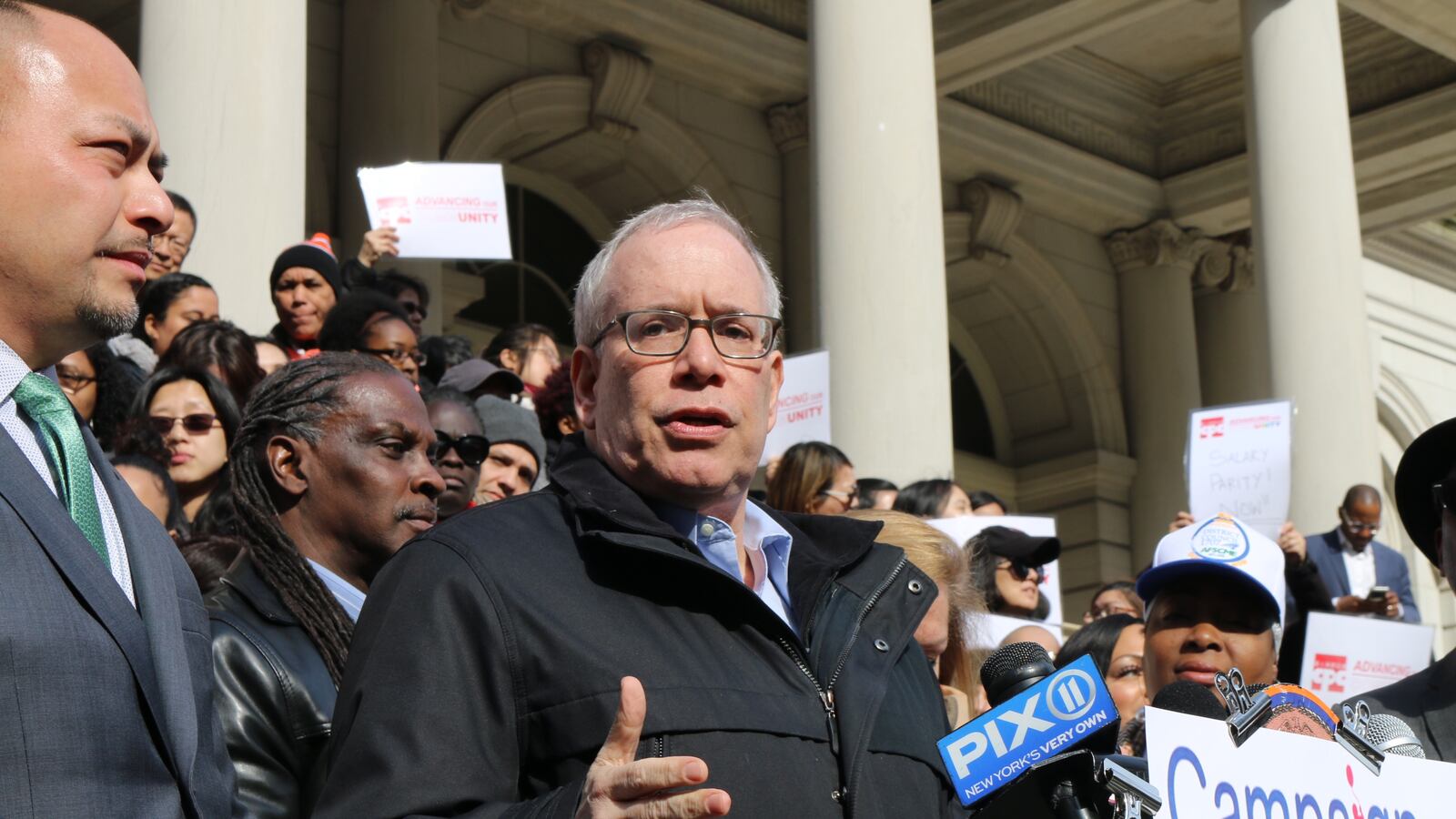New York City Comptroller Scott Stringer is calling on the education department to make major changes to its new contracts for pre-K and childcare services, echoing the concerns of community providers who say there are major flaws in the ways the city plans to fund them.
In a letter shared exclusively with Chalkbeat, Stringer notes that the city relies on community-run programs to make its universal pre-K program work, but those very operators have raised “serious questions” about the “feasibility” of the city’s new contracts. About 60% of children enrolled in the city’s free Pre-K for All program attend privately run programs, as opposed to public school classrooms.
“Providers are the backbone of our early childhood education and care system, but the system can be neither high-quality nor sustainable if built on their backs,” Stringer wrote in a letter sent Friday to the education department. “They deserve for the City to take the necessary time to get this right.”
The education department is in the midst of taking over responsibility for the city’s publicly funded early childhood programs, which have previously been overseen by the Administration for Children’s Services. As part of the shift, the city released a new round of contracts for providers to bid on to provide city-funded services. But the contracts include major changes to how children would be enrolled in centers, and how providers would be paid for their services.
At the end of April, about 70 operators, mostly nonprofit organizations, said in a letter to the mayor that they were “outraged” by the structure of the new contracts. Among their chief concerns: a payment model based on monthly student enrollment, which providers say can fluctuate dramatically and can therefore make it hard to budget for fixed costs.
Another major issue is that the new contracts don’t address salary disparities among teachers who work in community programs compared with educators in district schools, making it hard to hold onto staff in search of higher paychecks. The pay gap, which can run as high as 60%, led to threats of a strike that was averted when the city agreed to begin negotiating this month with providers and the union, District Council 1707.
The providers in their letter called on the city to withdraw its proposed contracts and draft new agreements that address their concerns. They said the changes would “starve the early education system of sorely needed investments even as teachers threaten to strike and providers consider closing classrooms or entire programs to remain financially viable.”
The city has said its aim is to create a more streamlined system of care and provide more services to families by expanding free pre-K to 3-year-olds through a program the city is calling 3-K for All. But providers questioned whether those goals are feasible under the new contracts.
“It is one thing to state your support publicly for the benefits of Universal Pre-K, campaign on the expansion of 3-K, and laud the progress to be achieved in creating a unified birth to five early childhood education system in New York City,” providers wrote. “It is quite another to commit the resources necessary to make such progress a reality.”
A spokesman for Mayor Bill de Blasio noted that officials held more than 100 meetings and solicited feedback for over a year before releasing the new contracts for bid.
“We’re taking the next step in building a strong birth-to-five system,” Raul A. Contreras, deputy press secretary for the mayor. “We’ll continue to engage providers and advocates, and move towards solutions that work for everyone.”

